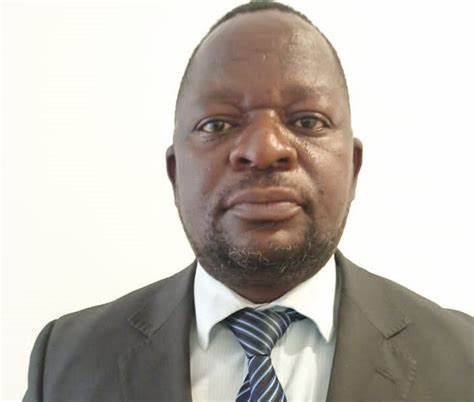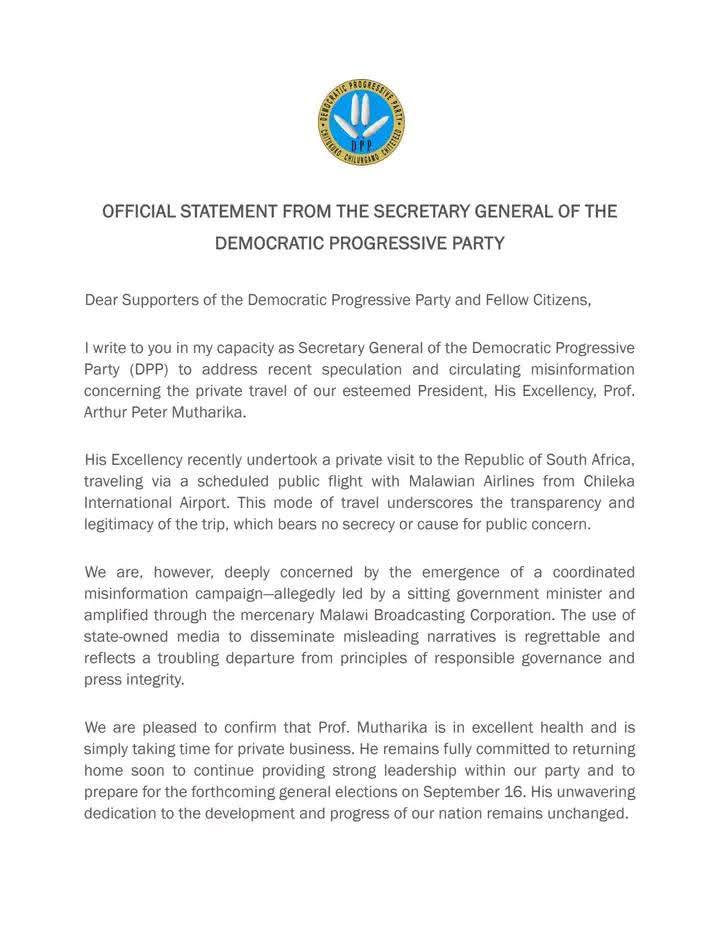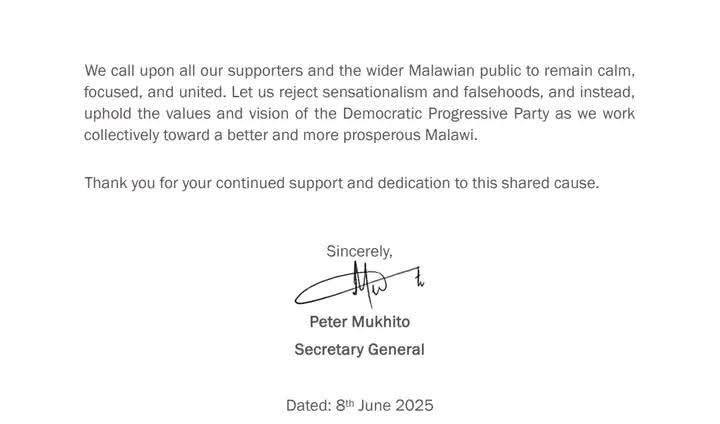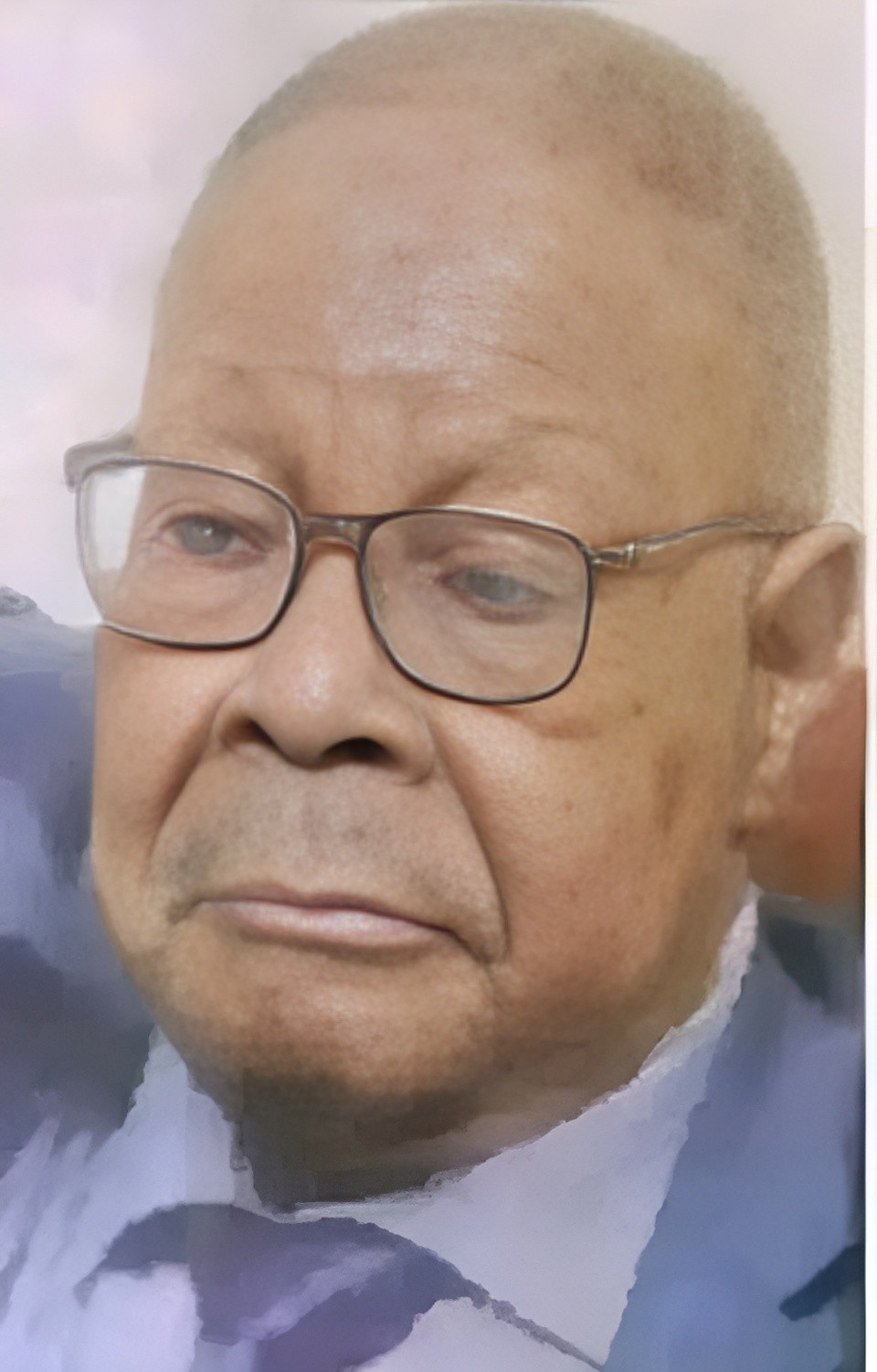Despite assurances from party spokesperson that Arthur Peter Mutharika is not out of the country, the Democratic Progressive Party (DPP) has unwittingly confirmed former President is in South Africa on a “private business trip”, exposing internal contradictions and a troubling pattern of opportunistic dishonesty and lies.
On June 6, 2025, DPP spokesperson Shadreck Namalomba passionately denied that Mutharika had traveled abroad, confidently insisting the septuagenarian was safely at home at his Page House residence in Mangochi.

Speaking to local media, Namalomba who is also Mutharika’s spokesperson, dismissed rumours that Mutharika had been flown to South Africa for medical treatment, calling them “malicious and false” attributed to party detractors who “don’t wish the president well.”
“There is no cause for alarm. The former president is at his home and well,” said Namalomba.
Yet, just days later, DPP Secretary General Peter Mukhito has delivered a starkly different narrative.
In a statement dated June 8, Mukhito directly contradicted Namalomba’s narrative confirming that Mutharika had indeed travelled to South Africa, describing it as a “private visit” for “private business.”


“
His Excellency recently undertook a private visit to the Republic of South Africa, traveling via a scheduled public flight with Malawian Airlines from Chileka International Airport,” the statement reads. “This mode of travel underscores the transparency and legitimacy of the trip, which bears no secrecy or cause for public concern.”
Mukhito further claimed that Mutharika was in “excellent health,” reiterating that he remains fully committed to returning home and leading the DPP into the upcoming elections.
He also alleged a coordinated “misinformation campaign” against the former president, blaming a sitting government minister and the state-run Malawi Broadcasting Corporation (MBC) for spreading falsehoods.
The juxtaposition of Namalomba’s firm denial with Mukhito’s admission has ignited public debate and raised serious concerns about the DPP’s credibility. The conflicting messages have fueled speculation that the party may be concealing the true extent of Mutharika’s health challenges.

Multiple party insiders, speaking on condition of anonymity, told this reporter that Mutharika is currently hospitalized in South Africa, receiving medical treatment for an undisclosed condition.
These accounts suggest that the trip was not merely for private business but was in fact medically necessitated—a detail the party has yet to publicly acknowledge.
This incident draws comparisons to the DPP’s handling of President Bingu wa Mutharika’s death in 2012, when senior party officials, including then-Foreign Affairs Minister and late Head of State’s brother Arthur Peter Mutharika, were accused of attempting to conceal the president’s death to delay the constitutional transfer of power.
Political analyst from University of Malawi said the DPP’s communication crisis reveals deeper issues within the party’s leadership structure.
“What we are seeing is a breakdown in internal coordination. When two senior figures make mutually exclusive statements, it’s more than a messaging error—it suggests a party at war with itself,” she said.
Critics argue that the DPP owes Malawians a consistent and transparent account of their leader’s status, especially as the country heads into a critical election period.
“Voters deserve to know whether the person who wants to lead them is in good health and available. These kinds of mixed signals only fuel doubt and mistrust,” said a governance expert.
In a further twist, Mukhito’s statement closed with a call to supporters to reject “sensationalism and falsehoods,” asking the public to remain “calm, focused, and united.”
“Let us reject sensationalism and falsehoods, and instead, uphold the values and vision of the Democratic Progressive Party as we work collectively toward a better and more prosperous Malawi,” the statement reads.
But those very values have been called into question by the party’s conflicting reports. As political commentators point out, unless the DPP urgently addresses the contradictions between its own spokespersons and issues a definitive and honest update about APM’s condition, the public will remain skeptical.
Attempts to reach both Namalomba and Mukhito for clarification were unsuccessful by press time.
Meanwhile, the political stakes continue to rise. Mutharika, at 87, remains the DPP’s presidential candidate, and any uncertainty around his health or availability could significantly influence the party’s electoral fortunes.
As Malawi waits for clarity, the DPP’s silence, or worse, its conflicting stories, may prove costlier than the truth it appears so hesitant to reveal.









